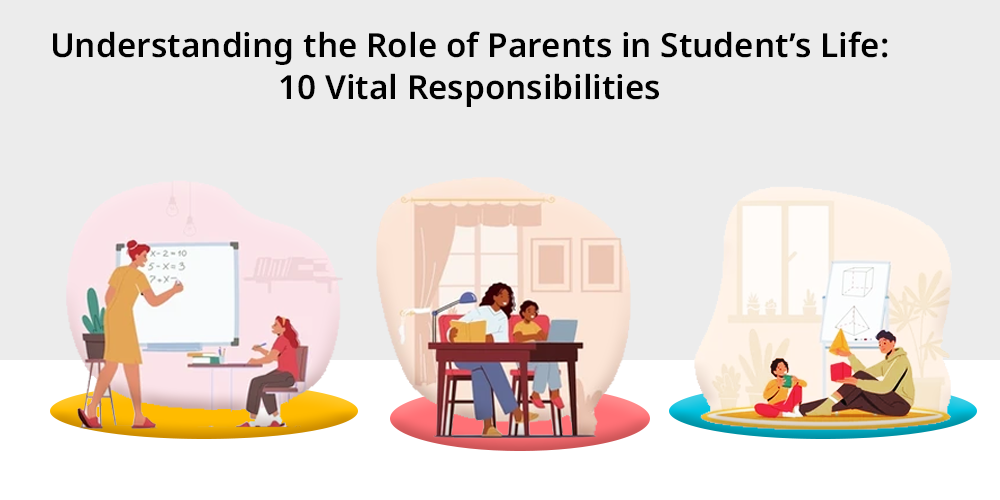
A student’s development significantly depends on parental involvement. Parents exercise influence over their children’s learning methods, school attitudes, and actions.
It gives them an overhead on their parent-child relationship while helping them understand their kids’ learning environment. Without knowing it, parents affect how their child develops academically as well as personally.
Parents hold an essential role in creating a balanced environment because educational success and emotional development are among the most vital elements for students’ future achievements.
This article investigates ten central roles parents play in student lives while providing specific methods to boost this effective parenting.
Parents who grasp these roles and their importance will develop abilities to improve their children’s academic performance and long-term success.
Contents
- Top 10 Parents Roles in Students’ Life
- 1. Be a Figure to Follow
- 2. Helping with the Academics
- 3. Evolution with Tech – Not Distraction
- 4. Right Peer Interaction Education
- 5. Emotional Support
- 6. Encouraging Life-Long Learning
- 7. Prevention from Social and Cultural Limiting Beliefs
- 8. Standing up for the Child
- 9. Promoting Critical Thinking
- 10. Creating Equilibrium: Educational Pursuit and Children’s Social Growth
- Parental Involvement in Students’ Lives: Practical Approaches for Handling Setbacks
- Wrapping Up
Top 10 Parents Roles in Students’ Life
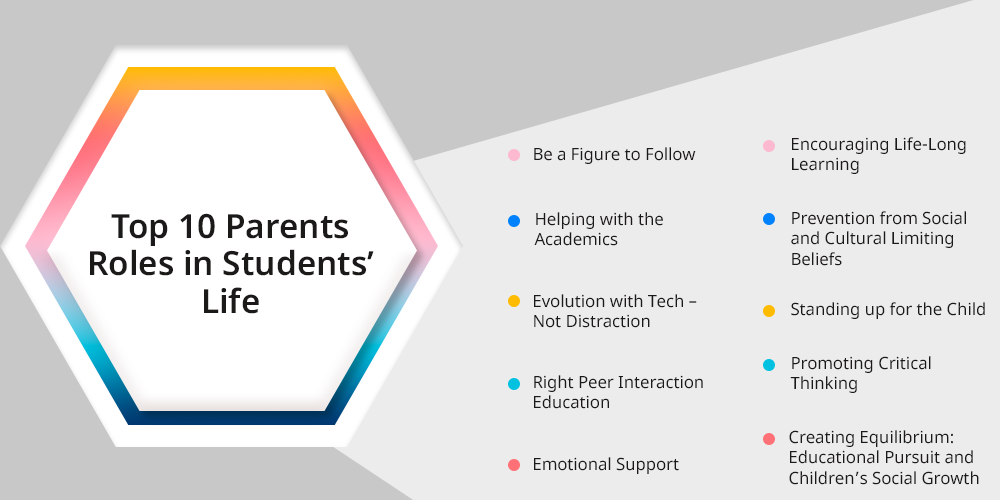
Parenthood comes with a bunch of responsibilities to cater. Parents are the first source of education, awareness and introduction to this world.
Thus, some of the key tasks parents need to perform, so that their child grows well in this world are given below.
1. Be a Figure to Follow
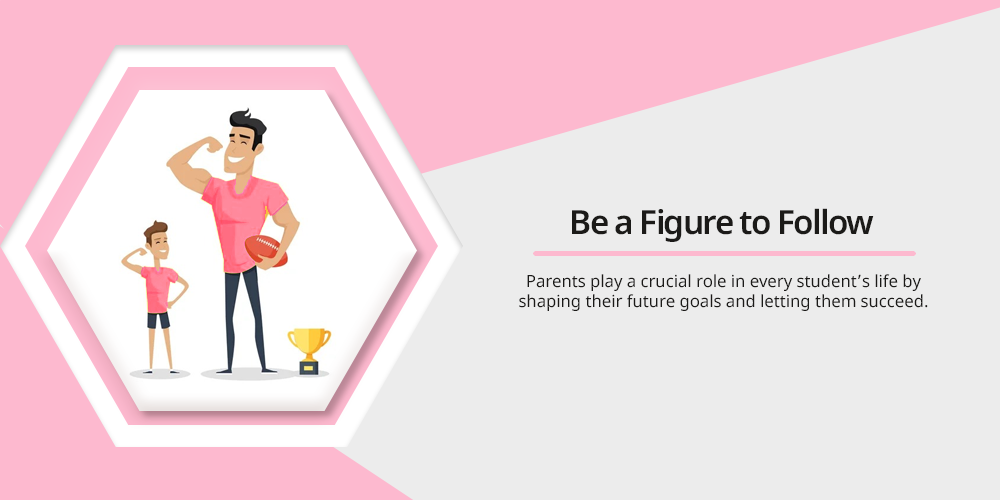
Parents play a crucial role in every student’s life by shaping their future goals and letting them succeed. They should be a role model for their children and this should be their primary responsibility.
When you serve as a positive example to your children they will develop self-discipline and responsibility along with respect for others.
Children tend to emulate their parents by copying their processes and their spoken expressions together with their conduct patterns.
Parents’ reactions to unpredicted events educate their children about handling tough times while failing but still showing success potential.
A parent who practices daily reading, and maintaining a work-life balance while showing respect for others naturally encourages their child to develop similar routines.
However, the academic dedication of children, their learning attitudes, and personal decisions are equally important.
2. Helping with the Academics
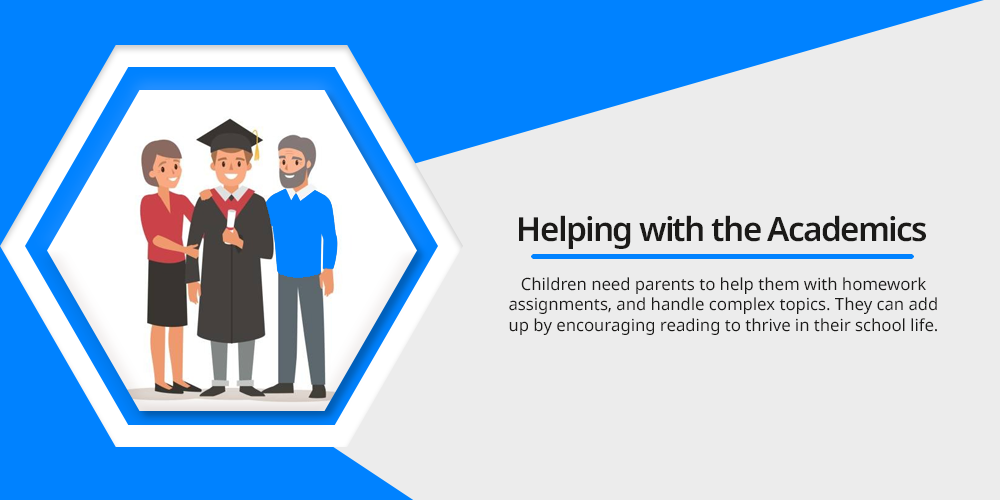
Parents are the first source of education for their children as they help with the academics. They need to provide academic support to children while they experience independent study.
Children need parents to help them with homework assignments, and handle complex topics. They can add up by encouraging reading to thrive in their school life.
Students learn best in positive learning environments which parents must create while ensuring their safety and focus on work tasks.
While seeking knowledge the parents should communicate with teachers and attend school events for direction when required.
They can further use teachers’ conferences and supplementary educational tools including tutors and digital educational resources.
Student academic performance together with their confidence and motivation improves when parents invest their involvement in academics.
You can also understand How Can Parents Help Their Children Succeed in Online Schools ?
3. Evolution with Tech – Not Distraction
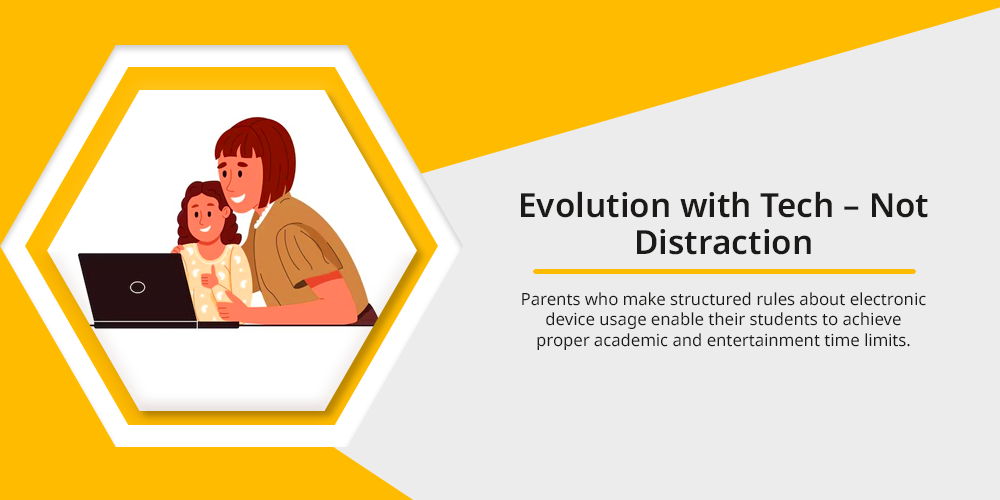
Parents should focus on evolution with tech-not distraction for the right upbringing of their child.
Every child requires parental guidance to use technology appropriately to make it useful rather than as a distraction. Parents can foster engagement with technology together with children.
They can further teach the age-appropriate use of technology while prioritizing their quality time with kids.
Technology either can be an effective instrument for education or give rise to interruptions in the current digital society. Parents should establish limits regarding recreational screen time so technology keeps away from educational activities and mental health preservation.
Parents who make structured rules about electronic device usage enable their students to achieve proper academic and entertainment time limits.
Teaching children digital literacy alongside responsible online behavior education creates safety in their future as the world becomes more technologically dependent.
4. Right Peer Interaction Education
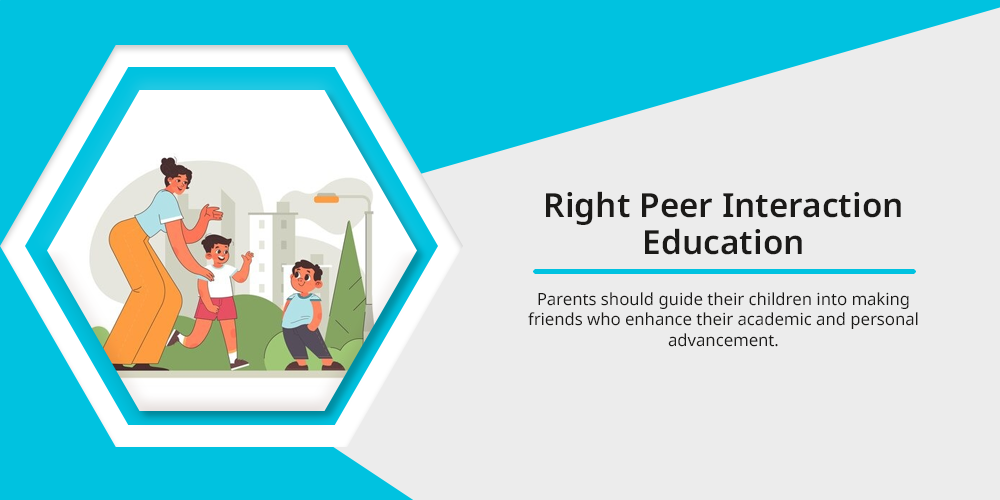
Right peer interaction education is one of the most vital lessons that parents need to teach their children. Parents should guide their children into making friends who enhance their academic and personal advancement.
A good peer-to-peer education can benefit in numerous ways.
Every student’s interaction during their development process proves fundamental for their growth. Students gain motivation through the right peers who support constructive hobbies and create a network of support.
A toxic friendship interferes with personal advancement while generating adverse conduct and academic deterioration.
Parents should instruct children about evaluating friendships while teaching them to establish boundaries and create relationships having shared values and mutual respect.
Parents need to focus on this during their teenage years since peer pressure reaches its maximum strength.
5. Emotional Support
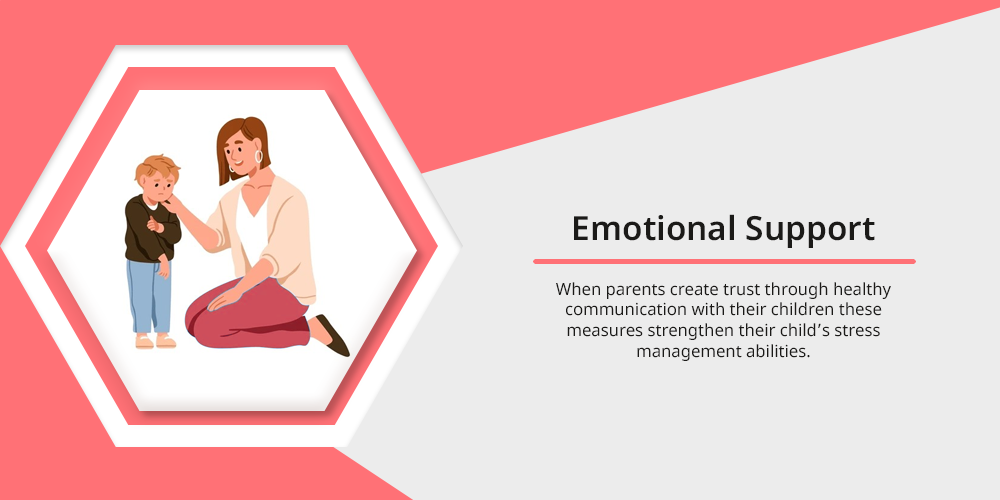
The right emotional support is what makes your child distinctive from any other child. Parents guide their children emotionally through all the phases of school activities.
Children require parental support by seeking their attention when facing problems like bullying, academic difficulties, or social isolation.
When parents create trust through healthy communication with their children these measures strengthen their child’s stress management abilities. Academic success in education exists alongside the development of emotional capability.
This increases their self-esteem and develops emotional competency. Students maintain their academic motivation combined with emotional well-being because of this emotional support which helps them stay grounded.
6. Encouraging Life-Long Learning
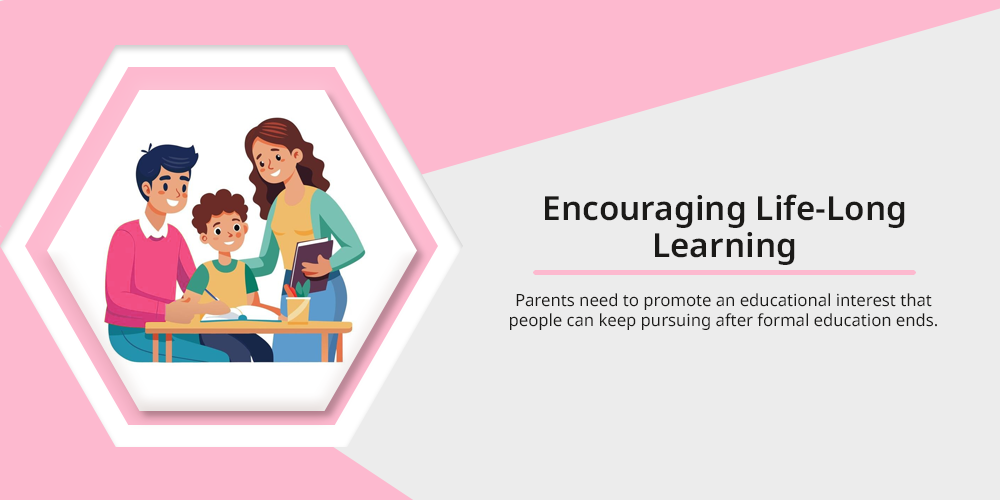
Parents need to promote an educational interest that people can keep pursuing after formal education ends.
When students learn through exploration along with developing their curiosity about new skills they end up acquiring a growth mindset that leads to life success.
Children who participate in activities like reading, learning languages, musical instrument practice, and sports will become talented at multiple things.
By pursuing these activities including course enrollment, seminars, and personal interests, parents teach their children the value of lifelong learning.
The message implies that educational development continues beyond school phases thereby linking lifelong benefits to future years.
7. Prevention from Social and Cultural Limiting Beliefs
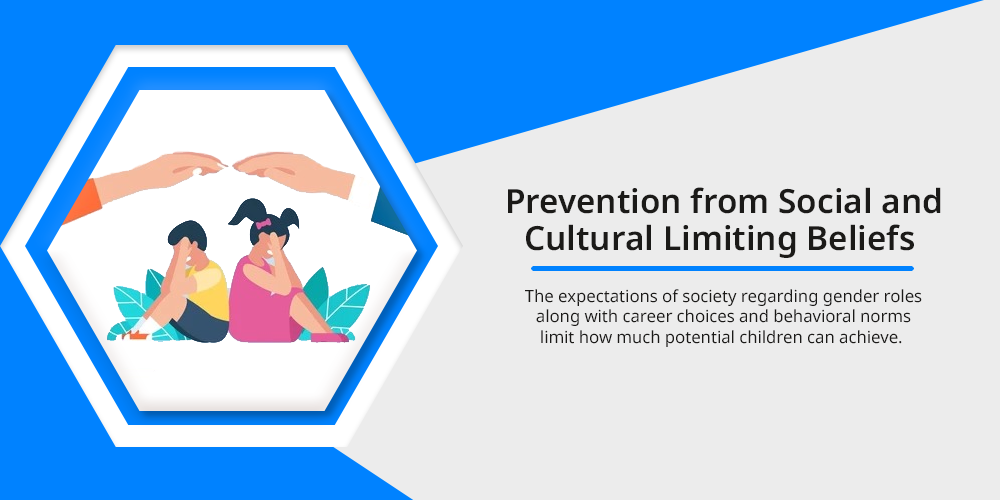
Children need their parents to educate them about how to fight against restrictive societal and cultural rules, and attitudes.
The expectations of society regarding gender roles along with career choices and behavioral norms limit how much potential children can achieve.
Children taught by parents to analyze social biases and adopt universal perspectives develop the skills to escape these social limitations.
Parents who support children to pursue their dreams regardless of conventional career options help children develop independence along with confidence.
Children develop empowerment when their dreams become achievable. This happens when diversity and equality become part of their learning experience.
8. Standing up for the Child
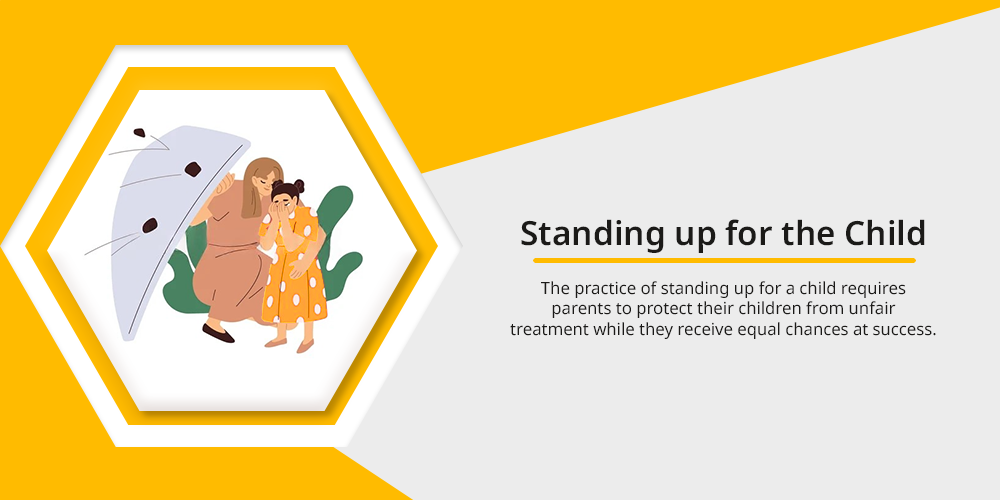
Parents need to stand as advocates who protect their children both at school, in events, and social interactions. Parents must step in to defend children who experience maltreatment through bullying or any kind of injustice.
The practice of standing up for a child requires parents to protect their children from unfair treatment while they receive equal chances at success.
Parents should teach their children proper methods of confronting conflicts and standing up for rights.
Demonstrating respectful self-defense techniques can teach how to build confidence in children and boost their self-image.
9. Promoting Critical Thinking
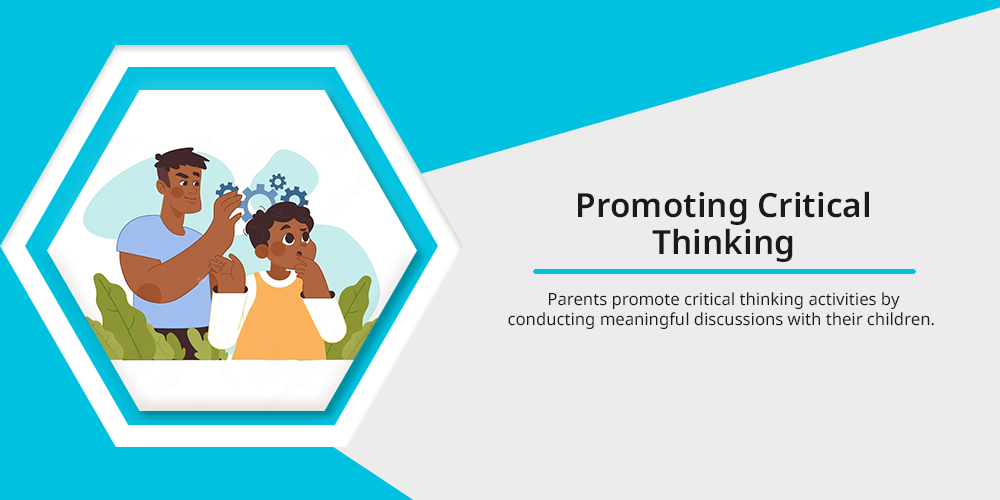
Parents promote critical thinking activities by conducting meaningful discussions with their children. Thus, helping students question old beliefs, and creating novel problem-solving approaches.
Academic achievement and life-fostering decision-making become possible for students because critical thinking stands as an essential ability.
Parents can enhance learning opportunities when they ask query-based questions to their children.
Instead of offering immediate solutions to their children, they can assist in developing investigative thinking skills.
Childhood conversations help children learn techniques for situation analysis combined with opinion formation to produce considered decisions.
10. Creating Equilibrium: Educational Pursuit and Children’s Social Growth
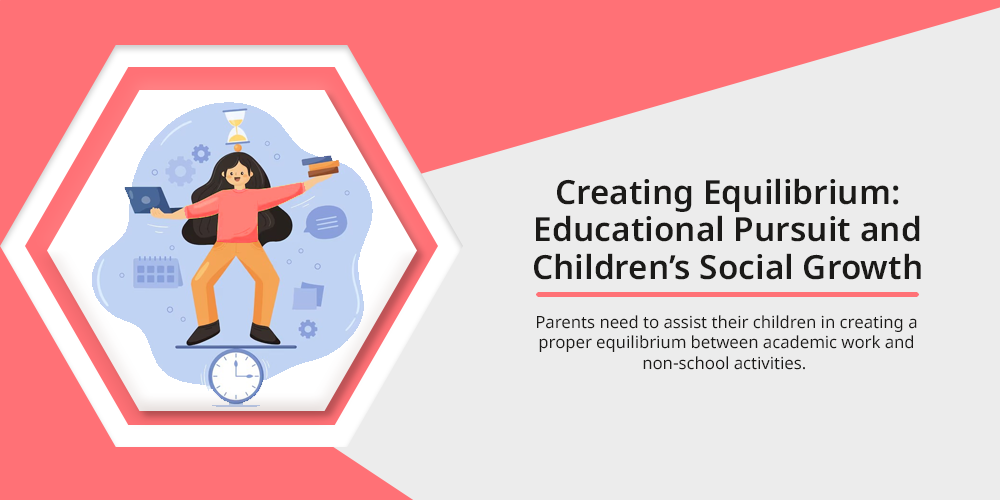
Parents need to assist their children in creating a proper equilibrium between academic work and non-school activities. Academic success stands equally important to society along with emotional development.
Parents should establish intervals for spending time with friends and family to enjoy personal relaxation.
When children experience appropriate amounts of learning time and recreational activities the outcome is reduced stress.
Students are also prevented from burnout, and experience improved social skills. Parents establish educational rules for study periods while supporting recreational activities. This allows children to succeed academically along with building social competencies.
Also Read: How can Students Cope with Study Stress ?
Parental Involvement in Students’ Lives: Practical Approaches for Handling Setbacks
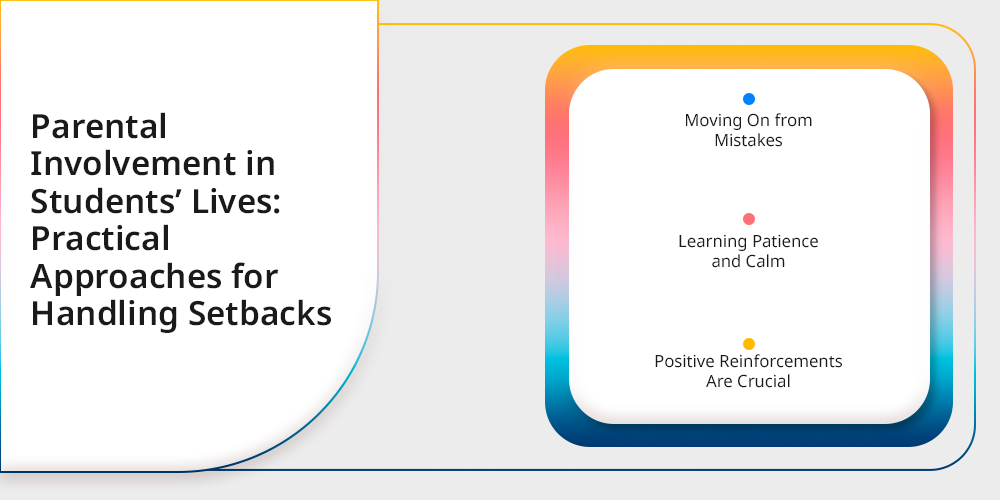
1. Moving On from Mistakes
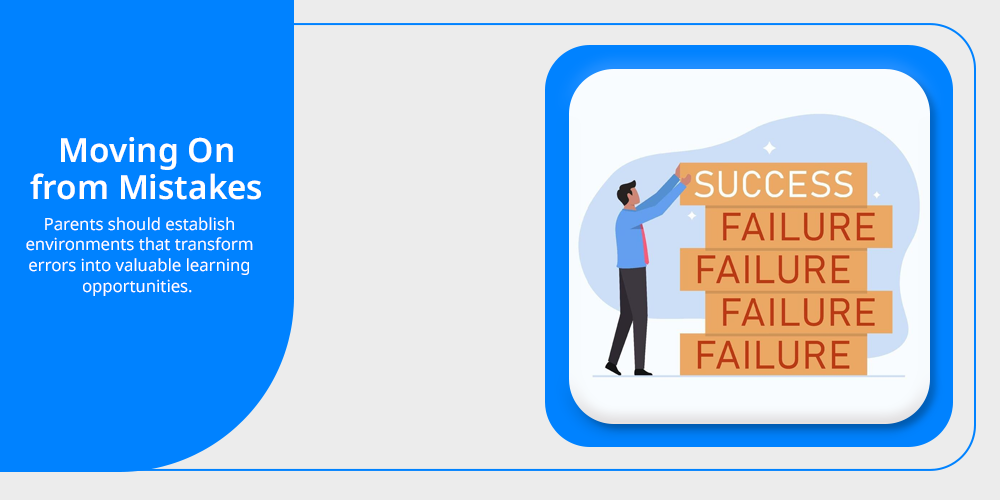
Parents should establish environments that transform errors into valuable learning opportunities. And not make their children feel humiliated by their mistakes.
Every human being makes errors in their everyday existence while pursuing knowledge.
Reflection exercises regarding failures, planning alternate actions, and potential improvements for the future enhance children’s determination and resilience.
2. Learning Patience and Calm
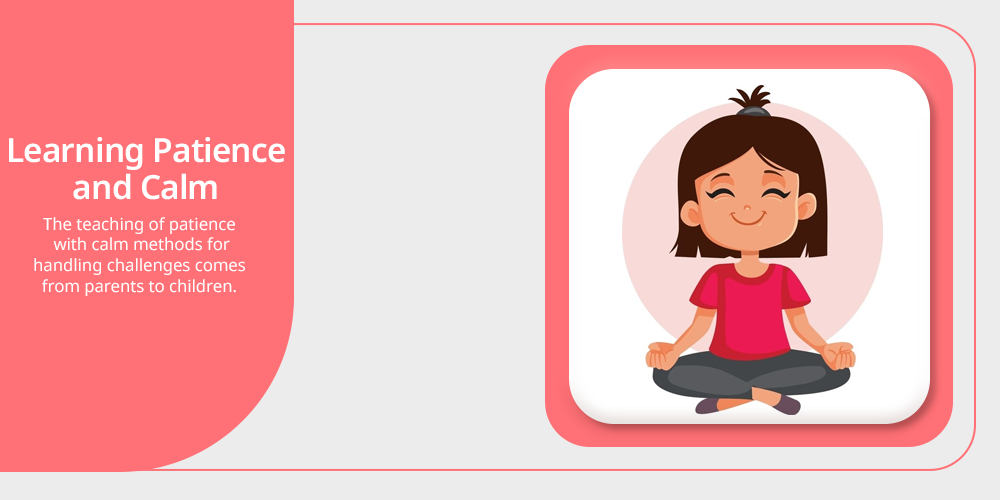
The teaching of patience with calm methods for handling challenges comes from parents to children.
Children typically experience the need to reach high standards efficiently because our society works at an accelerated pace.
The way parents show self-control while handling their frustration helps children develop patience. Children then apply these behaviours to themselves and others throughout life challenges.
3. Positive Reinforcements Are Crucial
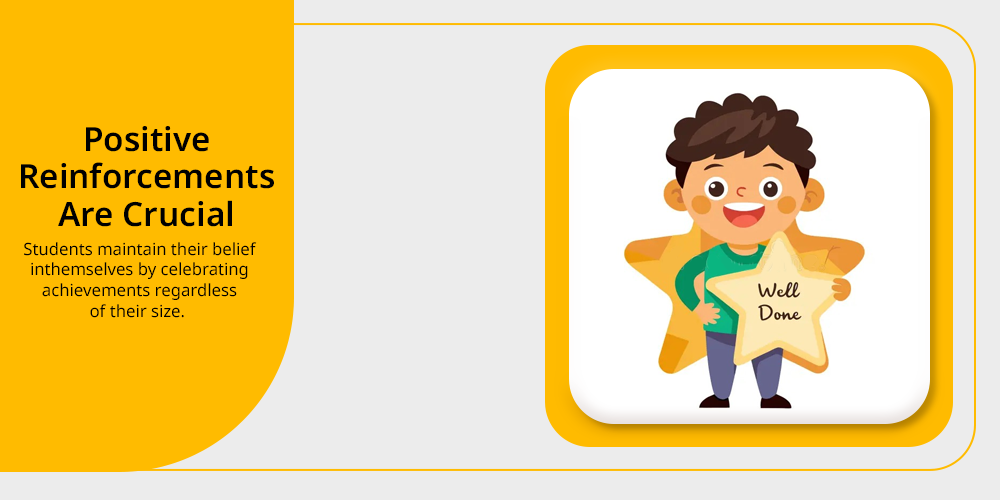
Parents must provide their children a healthy learning environment by applying positive reinforcements during their developmental stages.
The foundation of self-confidence together with motivation in children relies primarily on receiving positive reinforcement rather than constructive criticism.
Students maintain their belief in themselves by celebrating achievements regardless of their size. This helps them continue their efforts.
The teacher encourages by praising students through words, presents, and incentives, showing value to their dedication to learning.
Wrapping Up
Family members lead the formation of educational progress and personal advancement for children. Children need parental involvement.
This includes becoming role models while providing emotional backing and academic direction, leading to their academic success.
Practical child-development methods include continuous learning support, relationship promotion, and resilience development. Through these measures, parents can guide their children toward success in every aspect of their lives.
Active parental support of their children’s academic development together with personal advancement establishes basic skills which lead to lifelong achievement.
